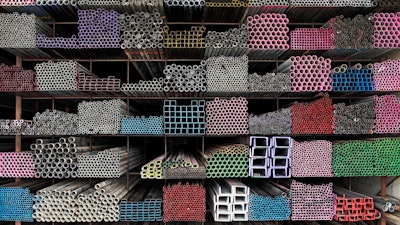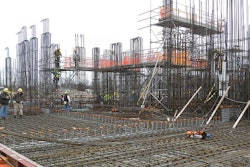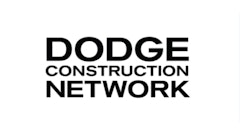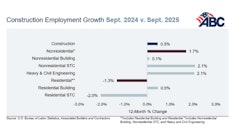
In a move that National Association of Home Builders’ Dave Logan says will harm housing affordability, the Trump administration increased tariffs from 10% to 25% on $200 billion worth of Chinese imports — including $10 billion of goods used by the home building.
Even as the higher tariffs go into effect, a Chinese trade delegation remains in Washington seeking to resolve the trade dispute. Officials still have time to find a last-minute resolution because the higher tariffs apply to goods that leave China on or after May 10 – not shipments already in transit and approaching American ports.
Last year, Trump imposed a 10% tariff on these goods, which Logan said in the NAHB blog represents a $1 billion tax increase on residential construction. The tariff jump to 25% is equivalent to a $2.5 billion tax on housing.
“Additional tariffs on a country like China, where we get many of our construction products, are an additional tax on homes,” Robert Dietz, chief economist at the National Association of Home Builders, said in an interview. “This comes at a critical time because we currently are at a 10-year low for housing affordability.”
Tariffs, also known as duties or levies, are collected by Customs and Border Protection agents from U.S. importers as items enter the country. The nation of origin doesn’t pay the tariff, though demand for its products may drop as a result of products being more expensive. Typically, U.S. importers pass on tariffs to customers who eventually pass it on to the consumer at the end of the line – in the homebuilding industry, that’s the homebuyer.
Bruce Case, CEO of Case Architects and Remodelers in the Washington, DC, told CNBC that he’d already seeing some clients reduce the size of their projects to rein in the budgets after the first round of tariffs.
“At the end of the day, I can guarantee you the price of every project we do is going to go up,” said Case.
More Perspective:
US-China Trade Tensions Continue to Cloud US Construction Industry Outlook
80 Trade Organizations Launch Major Campaign Opposing Tariffs



















